- Home
- Raymond Benson
The Secrets on Chicory Lane Page 9
The Secrets on Chicory Lane Read online
Page 9
I wondered, why? Then I recalled what had occurred prior to his leaving. Michael had been abducted, and Eddie had been extensively interrogated by the police. “Eddie. We never got to talk after what happened. I mean, really talk.”
“I know.”
“That was a painful time. For all of us.”
“It was. That goddamned Mr. Alpine.”
“I tried to tell them you had nothing to do with it. My mother … she wasn’t right in the head. She still isn’t.”
“I understand that now. It’s all right. I lived through it.”
“Were the police rough on you?”
Eddie shrugged. “I don’t remember too much about it. I was real scared, I know that. I was pretty traumatized by the ordeal. There was a good cop/bad cop thing going on. The bad cop was a real asshole. He scared the shit out of me. And my fucking dad made it even worse. He acted like I brought all that trouble onto the family even though I didn’t do anything. He blamed me, just because I was … me. That’s the reason I went away. I did sixth grade in Wichita Falls. It was pretty awful. But maybe it was better than being at home with my dad during that time period. Anyway, at least Mr. Alpine got what he deserved.”
“We never found out what happened to Michael’s body. Mr. Alpine died without revealing his secrets.”
“I know. The coward shouldn’t have hanged himself. He got what he deserved—death—but it should have been by the book. There should have been a trial. You’re right.”
I sighed. “I still don’t understand it. It doesn’t make sense.”
Then Eddie looked at me with those intense brown eyes. I swear, they were mesmerizing, as if he could look deep into your very soul. He said, “Evil lives where you least expect it,” and I got chills. Just the way he spoke the words sent a shiver down my spine.
We continued to talk, and time passed. We even danced, I think, one dance. Eventually I said I needed to get back to my folks. We mutually ended what turned out to be a meaningful and enjoyable catching up. He asked for the phone number at my house and wondered if I’d like to get together again with him while I was home for the holidays.
I said yes.
11
My mother was absolutely horrified that I had a date with Eddie Newcott. She went on and on about how the neighbors across the street were “strange” and “snooty”—as she always had. When I asked what she meant, Mom said that they always gave her dirty looks. Did she consider that perhaps the Newcotts held it against her that Eddie had been roughly interrogated by the police for an entire day in 1966? I didn’t say that, though.
Yes, the Newcotts had been strange from the beginning. Charles Newcott was a cruel, alcoholic, wife-and-son-beating bastard. I agreed with Eddie on that one—good riddance. As for Eddie’s mother, I believe she had been so abused by her husband that she had become a mere shell of a woman. According to Eddie, she was an alcoholic, too, and I imagine she suffered from depression, just like my own mother. In many ways, both our mothers were similarly damaged.
All my father had to say about my date was that he hoped I knew what I was doing and that we should have a nice time.
Eddie and I got together on December 23 to go to a movie—Network, that film about a fictional television network starring Faye Dunaway and Peter Finch. For the rest of the evening, Eddie and I kept laughing and reciting the famous quote, “I’m mad as hell and I’m not going to take it anymore.” It was a good show. Afterward we went back to the Oil Derrick, which was hopping as usual. We sat at the same table we were at the other night. Lord, I don’t remember what we talked about, but we were there until midnight. Eddie opened up to me. He spoke about how his father had hurt him and his mother ever since he was a toddler. It was shocking. In the mid-seventies, domestic abuse was rarely talked about in the media. It was one of America’s ugly, dark secrets. Women didn’t want to press charges for fear of losing their livelihood in the form of a working husband. Kids were just plain scared to tell on their parents. At least in the past forty years, the public has become somewhat more aware of the problem, and measures are now in place to combat it, although there could be a lot of improvement in that regard.
At some point, the conversation drifted to the memories of our childhoods on Chicory Lane. We talked about hunting horny toads in the vacant lots and riding our bikes downtown to the library. The names of some of the neighborhood kids—Dean and Greg and Sally and others—came up, and Eddie filled me in on what he knew about them. It wasn’t much. None of them lived on the block any more. Both Dean and Greg still lived in Limite—Dean was married. He didn’t know what happened to Sally.
We were both a little intoxicated by the time we got in his car—a beat-up Chevy Nova. Eddie said he still had a motorcycle and usually preferred using it, but for the date he borrowed his mother’s car. We made it safely to Chicory Lane and he parked in his driveway.
“You want to see my artwork?” he asked.
I thought, Sure, why not? It wasn’t as if I had far to go to get home. I said okay, and he led me into the house. I hadn’t been in there since ’66, but it still looked the way I remembered it. Betty Newcott wasn’t the greatest housekeeper. The furniture was old and run-down. There was clutter everywhere, mostly stacks of newspapers and magazines. A light had been left on for him in the living room.
He held a finger to his lips and said, “Mom’s asleep. Let’s go out back.”
“Out back?”
“Yeah, my studio’s in the bomb shelter!”
The bomb shelter. “Really?”
“Yeah, you remember the bomb shelter, don’t you? Come see what I’ve done to it.”
If I hadn’t had three screwdrivers, I might have made an excuse and said I’d come back during daylight hours. But I felt giddy and reckless. I followed him through the back door and into their yard. The shelter door looked the same as I recollected, except there was now a big padlock on the handle. Eddie pulled a key chain out of his pocket, found the right key, and opened the door. He went in first, turned on the lights, and called for me to descend into the ground.
It was a very different space. Eddie had decorated the walls with his art, which was the first thing that struck me as I gazed at the room. Most of it consisted of black-and-white sketches, but there were several full-color paintings. A drafting table and chair stood in front of the partition that separated the living quarters from the bathroom. A work-in-progress sat on the table, depicting a devil crucified on a cross. A devil crucified on a cross. It was very disturbing.
In fact, all of the artwork was creepy and scary. It was the stuff of nightmares—demons, monsters, near-naked women, scenes of pain and suffering, and abstract collages that were violently powerful. I would have been completely turned off had it not been for the fact that the work was so good. Eddie’s style and technique was original and highly accomplished. I knew a little about art from my years at UT—drama majors were required to take an Art Appreciation course, and I personally enjoyed visiting the Art Institute in Chicago where I saw famous paintings I’d only seen before in books.
“My God, Eddie, these are—wow,” I said. “I mean, it’s pretty creepy stuff, but you’re so good.”
“Thanks.”
“You were always into drawing this kind of stuff, weren’t you?”
“You know I was.”
I stepped closer to a color painting that portrayed demons throwing babies into a pit of fire—with pitchforks, no less. Despite the sickening subject matter, the detail was so intricate and well-executed that I was amazed.
“You are one sick bastard,” I said,
That made him laugh. “Yeah, I am. Blame it all on my childhood. I let out all my pain and suffering through my work. Just like van Gogh.”
“Vincent van Gogh didn’t paint monsters throwing children into hell.”
“Yeah, but I bet he felt like doing so at times. He’s the guy who cut off his ear and gave it to his girlfriend, you know. He was mad as hell and couldn’t take i
t anymore!”
The rest of the shelter was decked out as living quarters. The three cots were gone, but a double bed occupied one side of the space, along with a night table and lava lamp. A television sat on a small table on the opposite side of the room, with a record player and sound system next to it. There were maybe a hundred albums and cassettes on a shelf.
“You live down here?”
“Not all the time. I still have my bedroom in the house. But I think I sleep here more often. I’m usually up late working, so I just crash here.” He showed me that he had installed a refrigerator and a heating/AC unit. I also noticed a roach clip and the butts of a few marijuana joints in an ashtray next to the lava lamp. He noticed me looking, so he turned it on.
“It takes a while to get going,” he explained. Then he put on a record. “You like Pink Floyd?”
“I guess so.”
“You guess so? What’s wrong with you?”
“I like them all right. They’re not my favorite.”
“Who is?”
“I don’t know. I like David Bowie. Linda Ronstadt.”
He furrowed his brow. “Those two don’t go together.”
“So what?”
He just laughed. I continued to examine his artwork. “Don’t the paint fumes get to you down here?”
“Nah, it’s well ventilated. And I have a fan.” He opened the fridge. “Want a beer?”
“No, thanks, I’ve had enough for one night.” He pulled out a can for himself and popped it open.
“Hey,” I said, “wasn’t there a secret hiding place in the floor?”
“You remember that, huh?”
“Behind the toilet. What did you call it?”
“Davy Jones’s Locker.”
“Right. I sure have a lot of memories of this place.”
He looked at me. His stare was intense. “Yeah, me too.”
Did he remember everything we had done in here? Probably. If I did, then he did. I wasn’t about to bring it up, though.
“Hey, do you smoke pot?” he asked.
I laughed. “Uh, I have.”
Eddie immediately went to a drawer in a filing cabinet and pulled out a baggie full of the stuff. “Let’s get high, then.”
“Mm, not tonight, thanks. I’d really better get back across the street.”
“Why? Aren’t you old enough that your parents don’t wait up for you?” He had already started rolling the joint.
“Well, sure, I just … I don’t know …” Maybe I was feeling some of the claustrophobia I recalled feeling from those days in the sixties when we were in the shelter. But the music, the lava lamp, and my insane attraction for Eddie changed my mind.
He lit the joint, took a hit, and handed it to me. I don’t know why I did it, but I grasped the thing between my fingers and inhaled. Looking back, I realized I was a bit bowled over by Eddie’s good looks and charisma. He had a way of seducing you with those dark eyes of his. I’ve read a lot about Rasputin and the hold he had over Alexandra, the last tsar’s wife in Russia. Lots of men throughout history were purported to have the ability to mesmerize women. I believe Eddie had that power.
All I recall about the rest of the night was that we ended up in that double bed, basking in the glow of the lava lamp. Whether it was because of the drugs, the alcohol, or the excitement of being in a forbidden place—one that, in my memories, was the site of many erotic experiences—I had one of the best sexual experiences of my life. My God, Eddie knew what he was doing. He took me to plateaus and peaks I never knew existed. His body was muscular and hard and strong. I felt myself surrender to him without compunction. He was sweet, too, inquiring first about contraception—whether or not he should wear a condom. I told him no, I was on the pill, and he seemed very happy about that. We must have made love three or four times that night, and it was incredibly intense. I do recollect closing my eyes so I couldn’t see all that demonic art around us; however, there was also something otherworldly about being in the shelter with this beautiful man. It made the encounter that much more electrifying.
Afterward, we fell asleep and didn’t wake until morning. I caught hell from my parents when I finally did the walk of shame back across the street.
12
I’m getting close to Livingston, and I suddenly feel tired. It’s still early afternoon—I think I could use a cup of coffee—so I pull off at the next exit, where, lucky me, there’s a Starbucks. I go inside and find the place full of women, some with kids. Prison families. Have to be. The wives need a little pick-me-up before a visit to Polunsky. Are any of them there to see death row inmates? The odds are low; the entire facility is huge and houses nearly three thousand inmates, out of which only two or three hundred are on death row. Many of the women most likely have husbands or fathers in the general population.
That’s a world I can’t imagine.
Armed with caffeine, I return to my rental car and continue the journey. My thoughts go back to that morning after I’d first slept with Eddie. Both of my parents were upset, but it was my mother who really gave me hell. I think my dad went along with her because she was so upset. “How could you have done that with him?” she bellowed, as if Eddie was a convicted felon. Well, at least he wasn’t a felon then.
I told her I was an adult, and we got into a fight. Looking back, I realize I was only twenty-two, and I certainly didn’t know everything like we all think we do at that age. And I had just disrespected my parents by coming home for the Christmas holidays and spending the night with the boy across the street. Had I used my best judgment in sleeping with Eddie? Who knows; probably not. However, at the time, I was truly dazzled by him. He hadn’t even been trying to seduce me, really—it just happened. And we both wanted it. We were young and stupid. Not as young as when we fooled around in his bomb shelter in the sixties, but still, we were in our very early twenties, a time of life when one’s sensory receptors are wide open, ready to experience new feelings and emotions. We were rookies at being adults.
Maybe I was rebelling a little against my mother, too. While I understood perfectly why she was depressed and irritable all the time, I believed she could do something about it. Now I know that’s not necessarily true. If only she hadn’t become hooked on tranquilizers, she might have overcome her grief over losing Michael. Instead she misused the prescriptions, and the doctors were happy to keep writing them. The words mental illness were not ones that we often used back then. And I’m sorry to say I resented it at the time. Living with her was very difficult and unpleasant. I always felt she held Michael’s abduction against me because I left the front door unlocked. She never once said, “I forgive you.” When I was in therapy in the eighties, my doctor said I probably should have asked her for forgiveness, but I never did. I’ll have to live with that one, too.
At any rate, what happened, happened.
For the rest of Christmas break, I made it worse—Eddie and I embroiled ourselves in a torrid affair. We had only two weeks left in January to be together, after which I would have to go back to Evanston. So we made it count. Boy, did we.
Mother was mortified, and Dad was at a loss. Even Eddie’s mother questioned her son about it. We weren’t subtle at all. I’d go across the street, and we’d practically live in the bomb shelter almost every one of those fourteen days. Sometimes I’d spend the night. I tried to be with my parents at mealtimes and for a little while in the evenings before they went to bed. Then it was over to Eddie’s for hedonistic indulgence. We drank wine together, we smoked pot together, we made love together. The stereo blasted Eddie’s eclectic taste in music the whole while. I remember there was a lot of Pink Floyd and harder stuff like Black Sabbath. The two weeks were a binge of sex, drugs, and rock and roll—no question about it. And I wasn’t ashamed, either.
Probably because I was in love, or I thought I was.
Whatever magic Eddie possessed, he put a spell on me that December and January of 1976–77. I truly was in another world, lost in a whirlpool of s
ensual delights. In many ways, it was my first experience of real passion. Much of it is a blur now. When the time finally came for me to return to Illinois, I was heartbroken. I went over to say goodbye—I’d spent the previous night in my old bedroom—and we made love one more time before I left for the airport. We promised to call and write, and I assured him I would return to visit sooner than usual. He vowed to come to Chicago.
I won’t ever forget the heartache I felt for the first few weeks of the spring semester. It was pretty bad. Eddie and I talked a lot on the phone. I lived alone in an apartment, so there were no problems dealing with put-out roommates. He rarely wrote to me though, maybe only two times, his words written in the same printed block letters he always used. I asked him over the phone why he didn’t write me more often, and he replied that he was more expressive with his art, so if I preferred he could draw something for me and send it.
Somewhere tucked away in an envelope in one of the filing cabinets in my office are seven original sketches—one in color—by Eddie Newcott. That includes the early one from the sixties depicting a prince fighting a dragon, in which Eddie wanted to be my “night.” I’ve been told I could sell them for a lot of money. There are sickos out there who would pay for them—collectors of Charles Manson and John Wayne Gacy memorabilia and the like. Eddie, with the media’s “Evil Eddie” persona attached to him, had already attracted the yellow journalists and ephemera seekers. He had received two proposals of marriage since being sentenced to die. No doubt I could sell those drawings and do very well. But I won’t. Not yet, anyway.
At any rate, he never came to Chicago, but I went home for spring break the last week of March, 1977. Eddie and I had been anticipating our reunion for nearly three months by speaking on the phone every other evening and cooing like fools in each other’s ears. It’s a wonder I did all right in school. My mind was floating most of the time, but I managed to pull off A’s and B’s. Diving into my classes helped to keep me from obsessing about Eddie every waking minute!

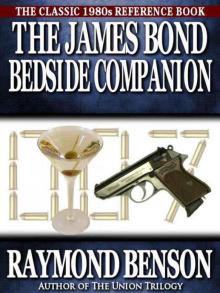 The James Bond Bedside Companion
The James Bond Bedside Companion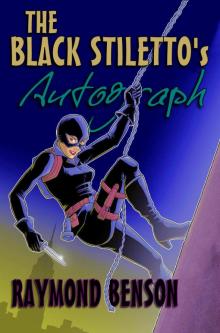 The Black Stiletto's Autograph
The Black Stiletto's Autograph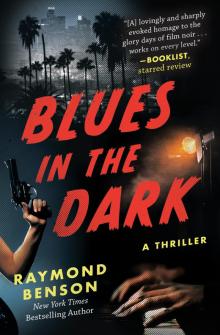 Blues in the Dark
Blues in the Dark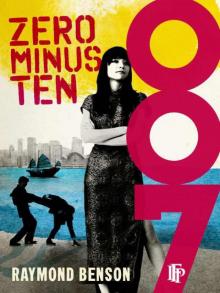 Zero Minus Ten
Zero Minus Ten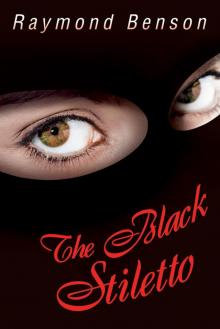 The Black Stiletto
The Black Stiletto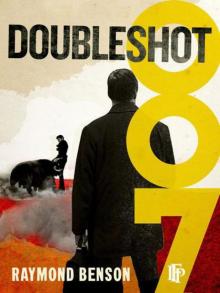 Doubleshot
Doubleshot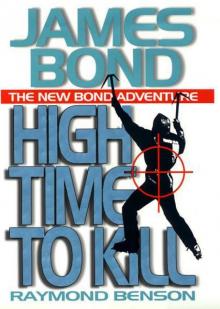 High Time To Kill rbb-3
High Time To Kill rbb-3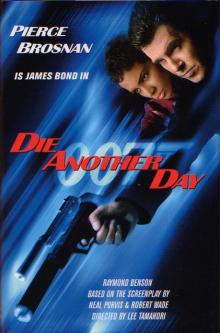 Bond Movies 07 - Die Another Day
Bond Movies 07 - Die Another Day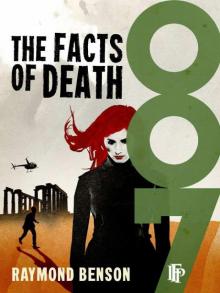 The Facts Of Death
The Facts Of Death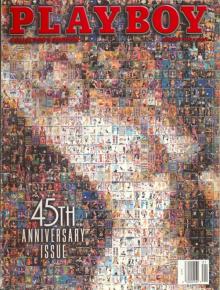 Midsummer Night's Doom
Midsummer Night's Doom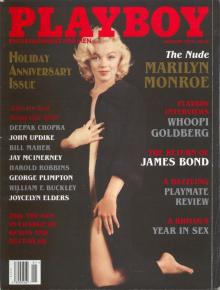 Blast from the Past
Blast from the Past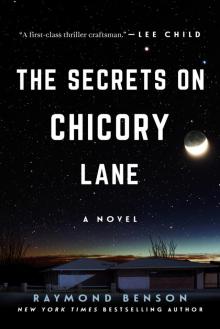 The Secrets on Chicory Lane
The Secrets on Chicory Lane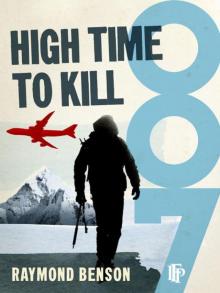 High Time To Kill
High Time To Kill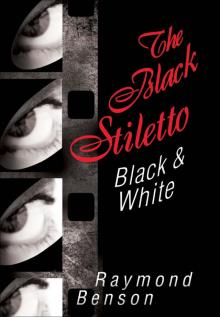 The Black Stiletto: Black & White
The Black Stiletto: Black & White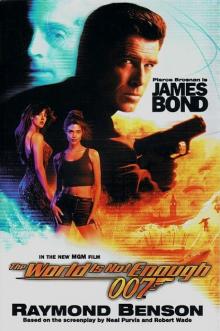 The World Is Not Enough jb-1
The World Is Not Enough jb-1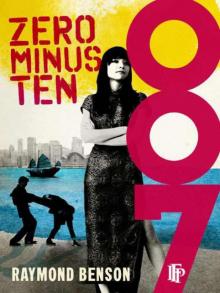 Zero Minus Ten rbb-1
Zero Minus Ten rbb-1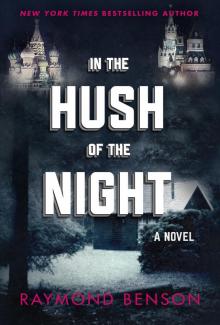 In the Hush of the Night
In the Hush of the Night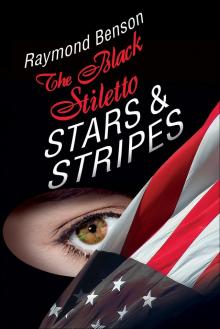 The Black Stiletto: Stars & Stripes
The Black Stiletto: Stars & Stripes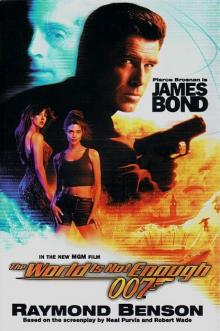 Bond Movies 06 - The World Is Not Enough
Bond Movies 06 - The World Is Not Enough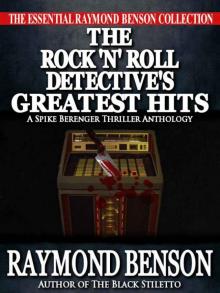 The Rock 'n Roll Detective's Greatest Hits - A Spike Berenger Anthology
The Rock 'n Roll Detective's Greatest Hits - A Spike Berenger Anthology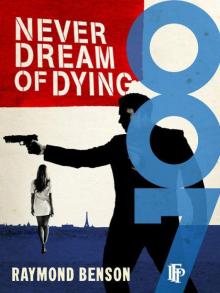 Never Dream Of Dying
Never Dream Of Dying